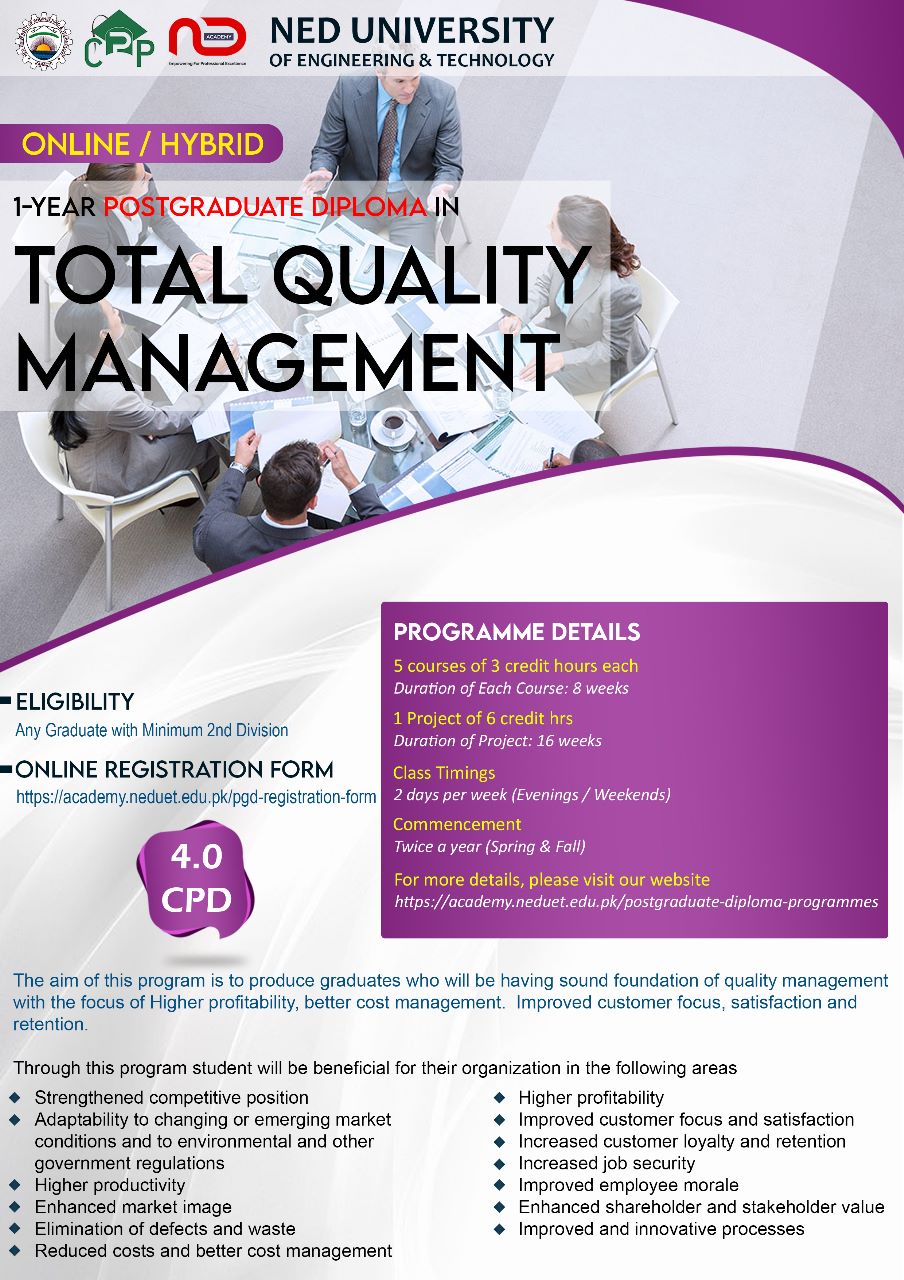ABOUT COURSE
Course 1. Total Quality Management
Total quality management and its concepts, quality parameters/characteristics, limits and tolerance of acceptance, quality inspection, generic production / transformation / operation model, product standards and standards institution, basic quality control and its charts, TQM philosophies by different quality gurus and experts, conversion strategy of TQM philosophies into TQM practices, TQM tools and techniques, system standards for quality assurance, types of quality audits, technology intervention, TQM awards, indigenous quality initiative and practices.
Course 2. Lean Six Sigma
Introduction to Six Sigma, Projects and Processes, DMAIC, Statistics Concepts for Six Sigma – Graphical Analysis; Normal and Non-Normal Probability Distributions; Correlation and Regression; Hypothesis Testing; Sample Size; Advanced Control Charts; Applying Statistics to Business Applications through Six Sigma, Introduction to Six Sigma Software – SPSS; Minitab; Matlab, Analysis of Variance, Applications of Six Sigma in Selected Business Functions.
Course 3. Supply Chain Management
Introduction to Supply Chain Management, Production Planning and Master Scheduling, Materials Requirement Planning, Capacity Management and Production Activity control, Forecasting and Demand Management, Products and Processes, Lean Production, Total Quality Management, Strategic Supply Chain Management, Re-Engineering of the Supply Chain, IT-Enabled Supply Chain, Decision Support Systems for Supply Chain Management, Data Mining and Data Warehousing in Supply Chain Management.
Course 4. Organizational Management
Evolution of management thought, classical, quantitative and behavioral schools; Interactions between organizations and their environments. The planning process; Strategic and tactical planning, developing planning premises, nature of managerial decision making, quantitative aids, management by objectives. Organizational structures; Behavior of the individual, work group, and organization; Coordination and spans of control, the informal organization; authority delegation and decentralization, groups and committees, managing organizational change and conflict. Motivation, performance and satisfaction; Building a high-performance team; Recruitment & staffing, Leadership, interpersonal & organizational communication, staffing and personal function. The control process; Budgetary and non-budgetary methods of control; Team performance measurement and improvement strategies. Use of management information systems.
Course 5. ISO Quality Certification and Audit Management
Processes involved in establishing, implementing, operating, monitoring, measuring, analyzing, evaluating, reviewing, maintaining, and improving a quality management system, the terms and definitions in ISO, PDCA cycle, The seven quality principles, Stakeholders identification, Purpose and scope of quality policy, Processes needed to meet quality management system requirements, Quality control of externally provided processes, products and services, Monitoring, measurement, analysis and evaluation of the quality management system performance, continuous improvement, Risk based approach, Relationship with other management system standards, Key considerations for implementation; Preparing the organization for ISO certification, ISO audit, Audit principles, procedures & techniques, internal and external audit.


